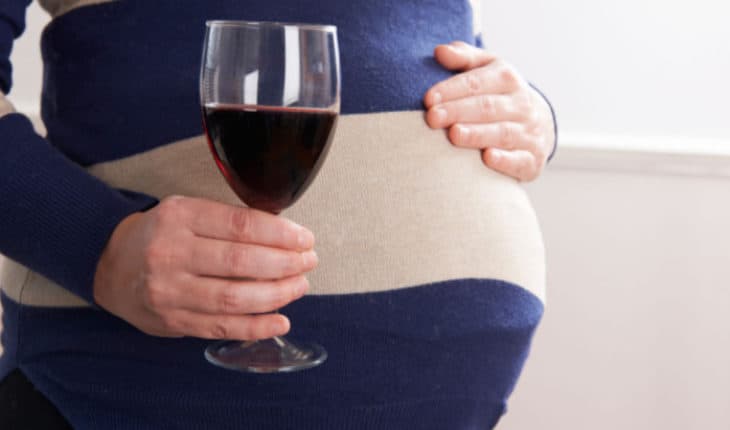Pregnant women’s use of alcohol correlates with that of their partner, a new study from the University of Eastern Finland and Kuopio University Hospital shows. Paying attention to both parents’ use of alcohol may help to prevent drinking during pregnancy, as well as foetal exposure to the adverse effects of alcohol.
Exposure to alcohol is detrimental to foetal development, and there is no known safe limit of exposure. The harmful effects of alcohol may manifest during the child’s development and growth in many ways. The risk of alcohol use during pregnancy has previously been assessed mainly on the basis of the expectant mother’s previous use of alcohol, but not on the basis of their partner’s drinking habits.
The new study looked at the alcohol consumption of 14,822 Finnish women and their partners before and during pregnancy. The study covered a total of 21,472 pregnancies between 2009 and 2018.
In 86% of the pregnancies, the expectant mother reported having used alcohol before pregnancy, and 4.5% also during pregnancy. In 25% of the pregnancies, women reported that they had stopped drinking only after learning about their pregnancy, which means that the foetus may have been exposed to alcohol in the early stages of pregnancy. However, partners generally did not reduce their alcohol consumption before or during pregnancy.
Before pregnancy, partners’ alcohol use was strongly linked to the frequency and quantity of alcohol consumed by women, how often they binge drank, and whether their drinking met the criteria for risk use. A weaker, yet significant association was observed also during pregnancy. In women who consumed alcohol during pregnancy, the quantity of alcohol used, for example, was affected by their partner’s use of alcohol.
Women who reported having used alcohol during pregnancy were usually heavy drinkers before pregnancy. Younger women had higher alcohol use risk scores before pregnancy, but during pregnancy their alcohol consumption did not differ from other age groups.
According to the researchers, the results show that, in order to protect the foetus from exposure to alcohol, both parents should reduce their alcohol consumption already when planning pregnancy. Both parents need information on the harmful effects of alcohol on the foetus, and when assessing the risk of alcohol consumption during pregnancy, the use of alcohol should be taken into account not only for the expectant mother, but also for the partner. The partner’s support may help to avoid alcohol consumption during pregnancy.
“Our findings are well in line with those from other European and American studies. There can, of course, be great local variation in maternal drinking between different sub-populations. When it comes to partners, we noticed that Finns seem to reduce their alcohol use less than what has been observed in other Nordic studies, but otherwise that, too, is in line with other Western countries,” Senior Researcher Olli Kärkkäinen from the University of Eastern Finland says.
- New lipid-based pathway discovered as key to memory formation - 25th June 2025
- Crucial link could explain how Alzheimer’s takes hold - 25th June 2025
- Understanding Your Mind Can Improve Daily Life - 25th June 2025







